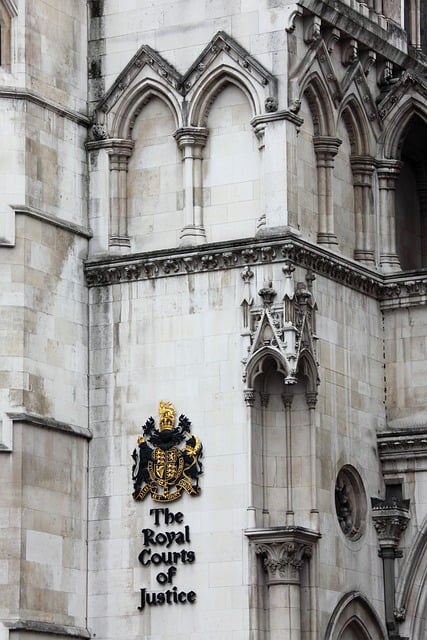Oregon probate law is crucial for managing and distributing estates post-death, ensuring wills are executed fairly and property is distributed according to the deceased's wishes or state law. Understanding key aspects like legal document filing, executor appointment, asset gathering, debt payment, and distribution is essential for residents planning their estate or handling a loved one's affairs. An introduction to Oregon probate provides valuable insights, empowering individuals to make informed decisions and navigate this complex process with clarity. By grasping basic probate steps—from petitioning to distribution—residents can ensure fairness, comply with legal requirements, and protect their interests during emotionally challenging periods.
Oregon residents planning their estate or navigating a loved one’s probate often wonder about the complexities of Oregon probate law. This comprehensive guide provides invaluable insights into the state’s probate basics, from defining what probate law entails in Oregon to demystifying the intricate steps involved in the probate process. By delving into key considerations and practical tips, residents can ensure efficient administration and secure their rights under Oregon estate law.
- Oregon Probate Basics: Unlocking the Fundamentals
- What is Probate Law in Oregon? A Comprehensive Overview
- Navigating Oregon Estate Law: Key Considerations for Residents
- The Step-by-Step Probate Process in Oregon Explained
- Understanding Your Rights: Essential Oregon Probate Insights
- Practical Tips for Efficient Probate Administration in Oregon
Oregon Probate Basics: Unlocking the Fundamentals

In the state of Oregon, probate law plays a crucial role in managing and distributing an individual’s estate after their passing. An introduction to Oregon probate offers residents a fundamental understanding of this process, ensuring their wishes are respected while providing clarity for loved ones left behind. The probate process Oregon follows involves several key steps, including the appointment of a personal representative (often a trusted individual or attorney) who oversees the administration of the deceased’s estate.
This personal representative is responsible for gathering and managing assets, paying any outstanding debts, and ultimately distributing the remaining property according to the terms of the will or Oregon estate law. Understanding probate Oregon requires knowledge of these legal procedures, ensuring that residents can make informed decisions regarding their future plans and leave a clear path for their loved ones to follow.
What is Probate Law in Oregon? A Comprehensive Overview

In the state of Oregon, probate law is a critical component of managing and distributing an individual’s estate upon their passing. It involves a legal process that ensures the proper administration and eventual transfer of assets according to the deceased person’s wishes, or as dictated by state law in the absence of a will. The Oregon probate basics provide a framework for executing wills, administering estates, and ensuring fair distribution of property to beneficiaries.
Understanding Oregon estate law is essential for residents navigating the complex probate process Oregon. This includes filing necessary legal documents, appointing an executor or personal representative, gathering and managing assets, paying debts and taxes, and ultimately distributing the remaining estate to heirs. An introduction to Oregon probate offers valuable insights into this intricate system, helping individuals prepare for the future and ensuring their wishes are respected after their passing.
Navigating Oregon Estate Law: Key Considerations for Residents

Navigating Oregon Estate Law: Key Considerations for Residents
Understanding Oregon probate basics is crucial for residents planning their estate or dealing with a loved one’s death. The state’s probate law outlines a structured process to settle financial and property matters, ensuring fairness and order. Oregon estate law aims to protect the interests of all parties involved while efficiently administering deceased individuals’ estates.
The probate process in Oregon involves several steps, from filing a petition to distribution of assets. It’s essential to be aware of these procedures to ensure compliance and smooth transition. By familiarizing themselves with the introduction to Oregon probate, residents can make informed decisions regarding their estate planning and prepare for potential future challenges.
The Step-by-Step Probate Process in Oregon Explained

In Oregon, the probate process serves as a structured framework for managing and distributing a deceased individual’s estate. It involves several distinct steps that ensure fairness and order in the disposition of assets. The first step is typically the filing of a petition at the local court, initiating the legal process. This is followed by the appointment of an executor or personal representative who will oversee the administration of the estate. The personal representative must gather and manage all assets, pay any outstanding debts, and prepare tax returns.
Once these foundational tasks are complete, the heart of the probate process begins—the distribution of assets to heirs according to the terms outlined in the deceased’s will (or Oregon’s default rules if there is no valid will). This phase includes identifying beneficiaries, valuing assets, and ensuring proper notice is given to all involved parties. The court supervises this process, providing a transparent and accountable mechanism for managing the estate until its final distribution. Understanding these Oregon probate basics is crucial for residents navigating the complexities of estate law in the state.
Understanding Your Rights: Essential Oregon Probate Insights

Understanding your rights is a crucial step when navigating the complexities of Oregon probate law. As a resident of Oregon, familiarizing yourself with the state’s estate law is essential to ensure a smooth process for administering or contesting an estate. The probate process in Oregon involves several key steps and considerations, including identifying the qualified personal representative, gathering and managing assets, paying debts and taxes, and distributing the remaining estate per the deceased individual’s wishes.
Oregon probate basics provide a framework for resolving disputes and ensuring fairness among beneficiaries. This introduction to Oregon probate includes an understanding of the legal procedures, timeframes, and documentation required throughout each phase. By recognizing your rights and duties under the state’s probate law, you can actively participate in managing the estate and protect your interests during this emotional and often challenging period.
Practical Tips for Efficient Probate Administration in Oregon

Oregon probate law can be complex, but understanding the basics is crucial for efficient administration. One key tip is to gather all necessary documents upfront, including wills, trusts, financial statements, and personal belongings inventory. This streamlines the process and helps avoid delays. Familiarizing yourself with Oregon estate law, particularly provisions related to appointment of personal representatives and distribution of assets, is also essential.
Additionally, staying organized and transparent throughout the probate process in Oregon is vital. Keep clear records of all financial transactions and communications. Regularly updating beneficiaries and interested parties demonstrates good faith and helps maintain a smooth transition. Remember that an introduction to Oregon probate serves as a roadmap for ensuring your wishes are carried out according to state law.
